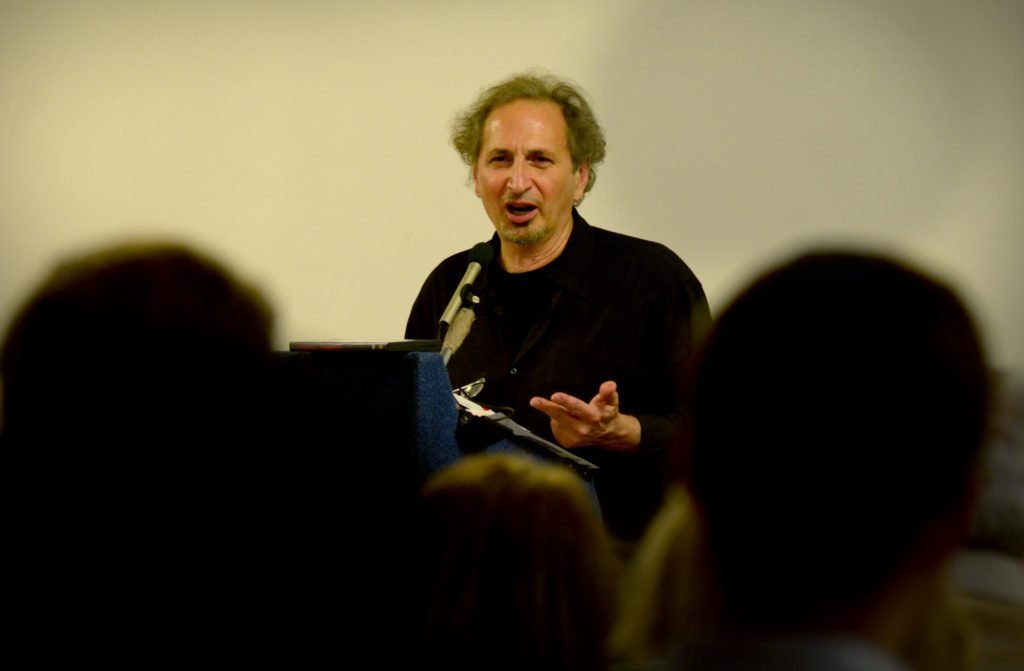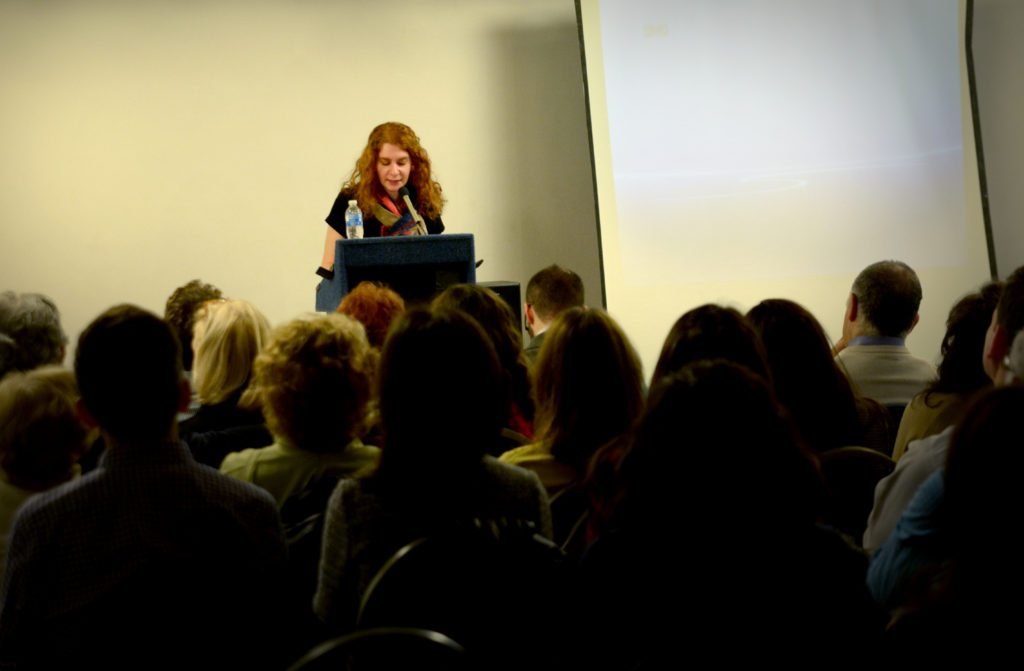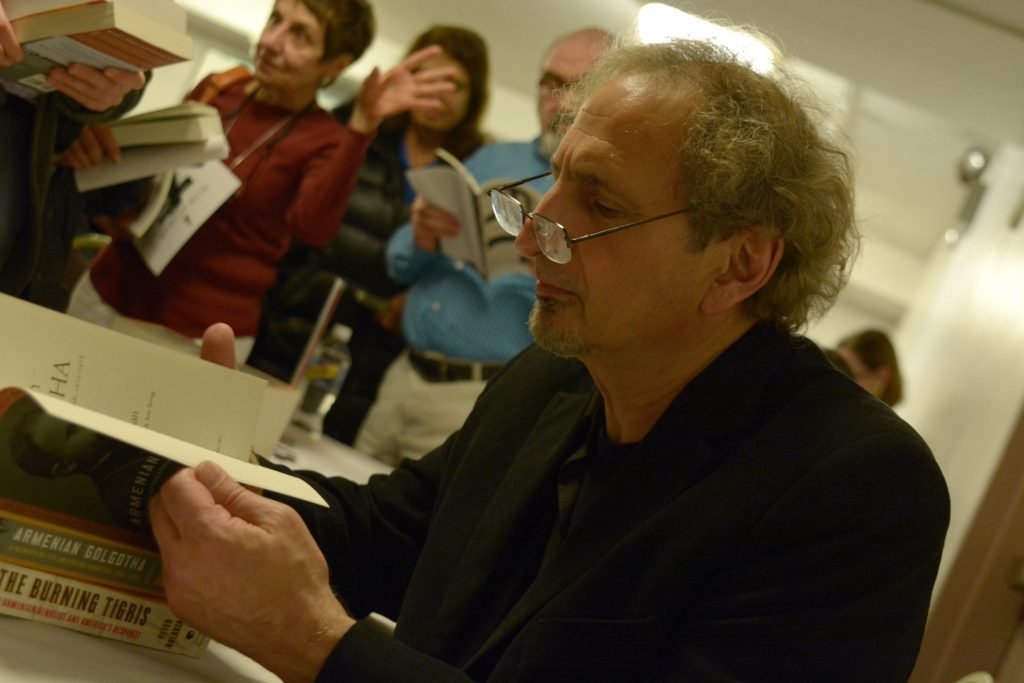NEW YORK—More than 100 people attended Prof. Peter Balakian’s talk, titled “Hollywood and the Armenian Genocide,” at the Diocesan Center in New York on April 8. The event was hosted by the Development Department of the Eastern Diocese of the Armenian Church of America.

Central to his talk was the screening of the first part of renowned director Elia Kazan’s 1963 film, “America, America,” which portrays the 1890’s massacres against the Armenians and the persecution of Greeks in the Ottoman Empire. The film centers on the journey of Greek protagonist Stavros Topouzoglou, who dreams of leaving his Anatolian village and moving to the United States, and features Armenian characters as part of the milieu of the Ottoman Empire.
“This film is a devastating critique of the Ottoman Empire in its last phase,” said Balakian. “The Greek and Armenian synergy of the characters and their interactions are very touching.”
Balakian noted that according to Kazan, “America, America” was his greatest work. The film, which blends memoir and fiction, is based on Kazan’s Greek uncle, who fled the violence against Christian minorities in the Ottoman Empire and resettled in the United States. Balakian raised the question of why the film never received a modicum of historical context and spoke of the film’s revival, led by Oscar-winning director Martin Scorsese.

“‘America, America’ is about the Turkish wholesale killings of Christians,” he said. “Kazan has a breakthrough here, and we need to ask why this film hasn’t been properly understood, because it is a rich piece of cinematic art ripe for scholarship.”
Balakian shared his essay, “The Land of Shame,” from his new book of poetry and essays, Vise and Shadow, which reflects on Kazan’s film and the Armenian Genocide.
Concluding his discussion, Balakian then opened the floor to questions and comments, which stimulated discussion about the Armenian Genocide and its portrayal in film and the arts in general. Balakian signed copies of his books and conversation continued throughout the evening.

Balakian is the Donald M. and Constance H. Rebar Professor of Humanities at Colgate University, and has written widely on the Armenian Genocide. His books include the New York Times best-sellers Black Dog of Fate and The Burning Tigris. His latest book of poetry and essays, Vise and Shadow, was released last year.
“Professor Balakian’s discussion was not only timely, but also evoked an important conversation about a piece of cinematic art that has been overlooked until now,” said Taleen Babayan, who leads the Development Department. “The Development Department is grateful to him in leading such an engaging talk during the month of Armenian Genocide commemorations and shedding insight into the Armenian cultural and literary world with our community.”



I always wondered why the film did not achieve more popularity.I found that growing up in an Armenian family in Watertown helped in understanding so many of the scenes,which may not have resonated with non-Armenians.The description of the Greek family trapped within the confines of Turkish rule fit in well with the stories I heard from my grandmother about life in Anatolia. Could it also be that Kazan named names at HUAC? He was a disaffected Communist who loved America and felt compelled to speak out about Communists in Hollywood but in so doing probably alienated the Hollywood elite. I read somewhere that the Mafia in “On the Waterfront” that ran the docks represented for Kazan the Communist control of Hollywood. Hollywood having felt betrayed by Kazan, may have limited the distribution of the film. I think we forget that our Armenian immigrant experience which seems so universal is in many ways sui generis and may not translate well into contemporary American life.Congratulations to Mr Balakian on his Pulitzer!
Wonderful article and congratulations to Peter Balakian for raising this question in this incredible week of his honoring by the Pulitzer Prize. I remember taking a bus from Lewiston, Maine to Manhattan to see America, America in the early 1960s when the movie was released. All these years later, I still remember and use to express frustration the closing words if the young protagonist, “people waiting, people waiting”